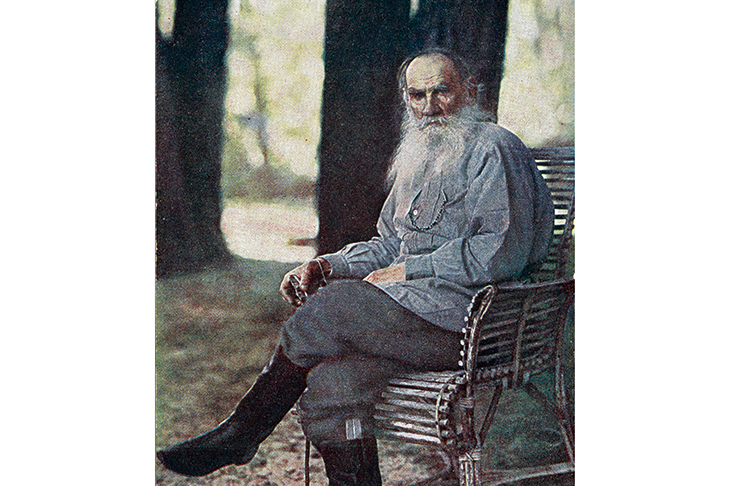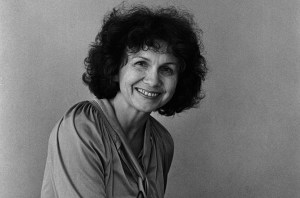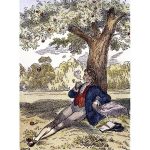It would be hard to have better travel-writer credentials than Sara Wheeler. Here the author of The Magnetic North and Terra Incognita, a specialist in Arctic and Antarctic adventure, turns her attentions to the land mass that sprawls across eight time zones, where any traveler is guaranteed to receive an ostentatiously frosty reception — initially, at least. Wheeler’s task has been to capture Russia through a bifocal lens: first through the eyes of the classic Russian authors she loves, and second through the lives of contemporary Russians we rarely hear about, outside of the Moscow–St Petersburg axis. ‘I was searching for a Russia not in the news — a Russia of common humanity and daily struggles — and my guides were writers of the Golden Age.’
This entertaining and insightful book performs two functions. It’s a whistle-stop guide to the best of Russian literature from 1800 to 1910. And it’s a beautiful piece of travel writing about the Russia of all our fantasies, from the ‘willow stooping over the central alley’ leading to Yasnaya Polyana, Tolstoy’s estate south of Moscow, to the distant shores of Lake Baikal, where Wheeler finds a delicious meal of white fish in a place where Chekhov could find only vodka (leaving him to surmise that Russians were pigs).
There’s plenty here for those who already know their classics (Tolstoy, Dostoevsky, Pushkin, Turgenev, Gogol), but it’s also put together brilliantly for anyone wishing to know more or just wanting to ease their way into a reading binge. And there are some surprises, such as a chapter on Nikolai Leskov, the author of Lady Macbeth of the Mtsensk District, a grim 1865 novella about a reverse, guts and glory Anna Karenina type, with blue-black hair, who murders anyone who gets in the way of her adulterous lust until she is swept away herself on a tide of revenge.
In this pleasingly dreamlike narrative Wheeler meanders, over a number of visits, across thousands of miles, encountering surly, judgmental homestay hosts who press curmudgeonly hospitality on her in the form of congealed porridge, force her to watch Russian Strictly Come Dancing and criticize the size of her undergarments hanging in their bathrooms. (Too small, apparently.) She wants to get to the heart (or soul — dusha) of Russia by trying to pick up the language, experience the country as its great writers did and get a feel for what exists beyond small talk or politics.
Although the book is a success, this quest — for a million reasons, not least linguistic and, I suspect, psychological — was doomed to failure. Russians, as Wheeler finds, are not keen to analyze, or open up to strangers, or even pose many questions of themselves or of others. But she doesn’t give up easily, even though everywhere she goes she hears the same things: casual racism and homophobia, a mistrust of the West and of liberal democracy, and the view that ‘Putin is the Tsar we need’. She sighs and bears her fate nobly, with the same sort of world-weary tolerance she encounters in Russians. But the more determined she is to get under the skin of these people, the more they prove elusive or play to type. She concludes that the lives of the millions of Russians outside the big cities she wanted to represent ‘were and are consumed with the generally dreadful business of being Russian’.
I took issue with her conclusions on occasion, wondering if they might be rooted in the personal sadness that she hints at the beginning of the book. (This is not a memoir, but it’s infused with a sense of Wheeler as a traveler.) Sometimes I felt frustrated on her behalf that there weren’t more moments of illumination, joy or unbridled enthusiasm. I wanted to hear from weird and wonderful Russians who resist the oft-repeated narratives. (I know they exist.) But this is a painfully honest account, rose-tinted spectacles firmly placed to one side, and there is something compelling about Wheeler’s darkly passionate tone. There comes a point when she can’t keep away from Russia; and when she’s not there, she forces herself to cook cream-cheese pies and visit terrible Russian shops in London in order to feel as though she were still connected to the place. It’s a complicated, bleak romance that mirrors the love-hate relationship many of the great writers had with their own country and people.
You believe her when she writes of the ‘balm’ Dostoevsky has brought her in troubled times; and I wanted to shake some of the Russians she meets for being so moody and grumpy when she was just looking for a friend and a laugh. In the end, though, she seems to learn something about forbearance and black humor — as summed up in Sonya’s great monologue in Uncle Vanya — which she mentions with grim satisfaction as encapsulating the entire Russian experience:
‘We shall bear patiently the burdens that fate imposes on us. We shall work without rest for others, both now and when we are old. And when our final hour comes, we shall meet it humbly, and there beyond the grave, we shall say that we have known suffering and tears, that our life was bitter.’
Good times, comrades! Aptly, Wheeler also quotes the old Soviet ‘joke’ that Russians love to repeat: ‘We wanted better. It turned out like always.’
This article was originally published in The Spectator magazine.
















